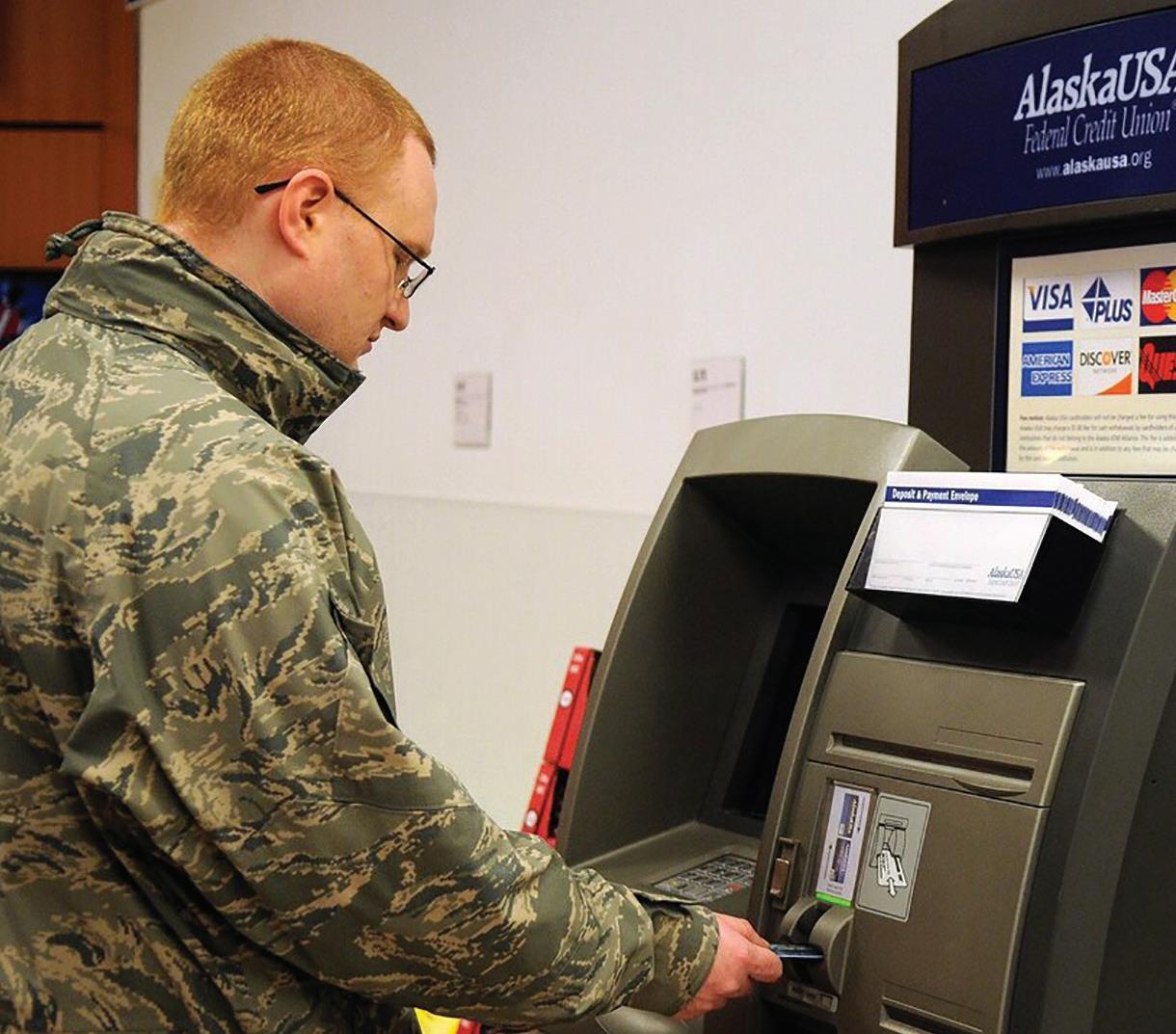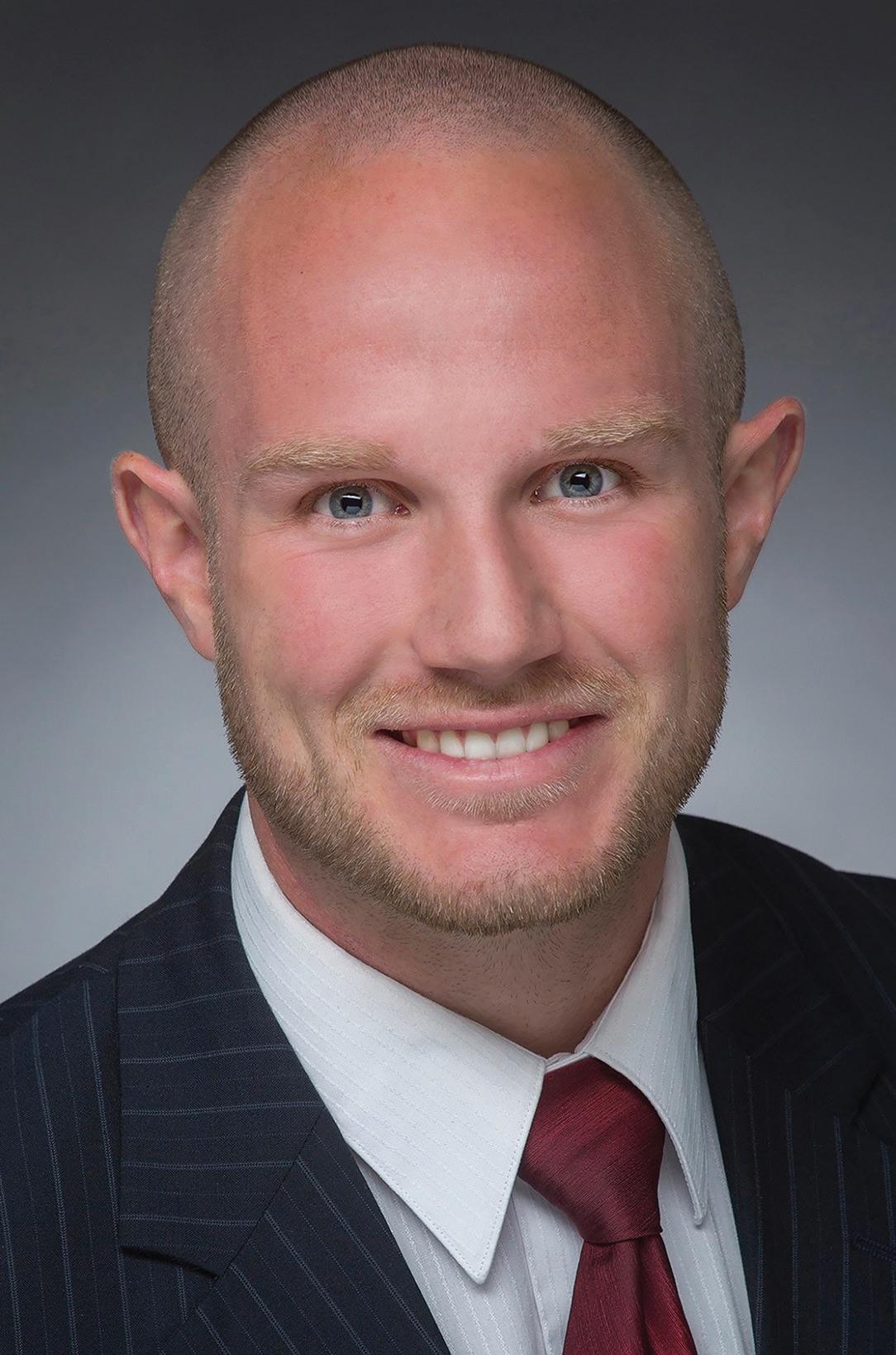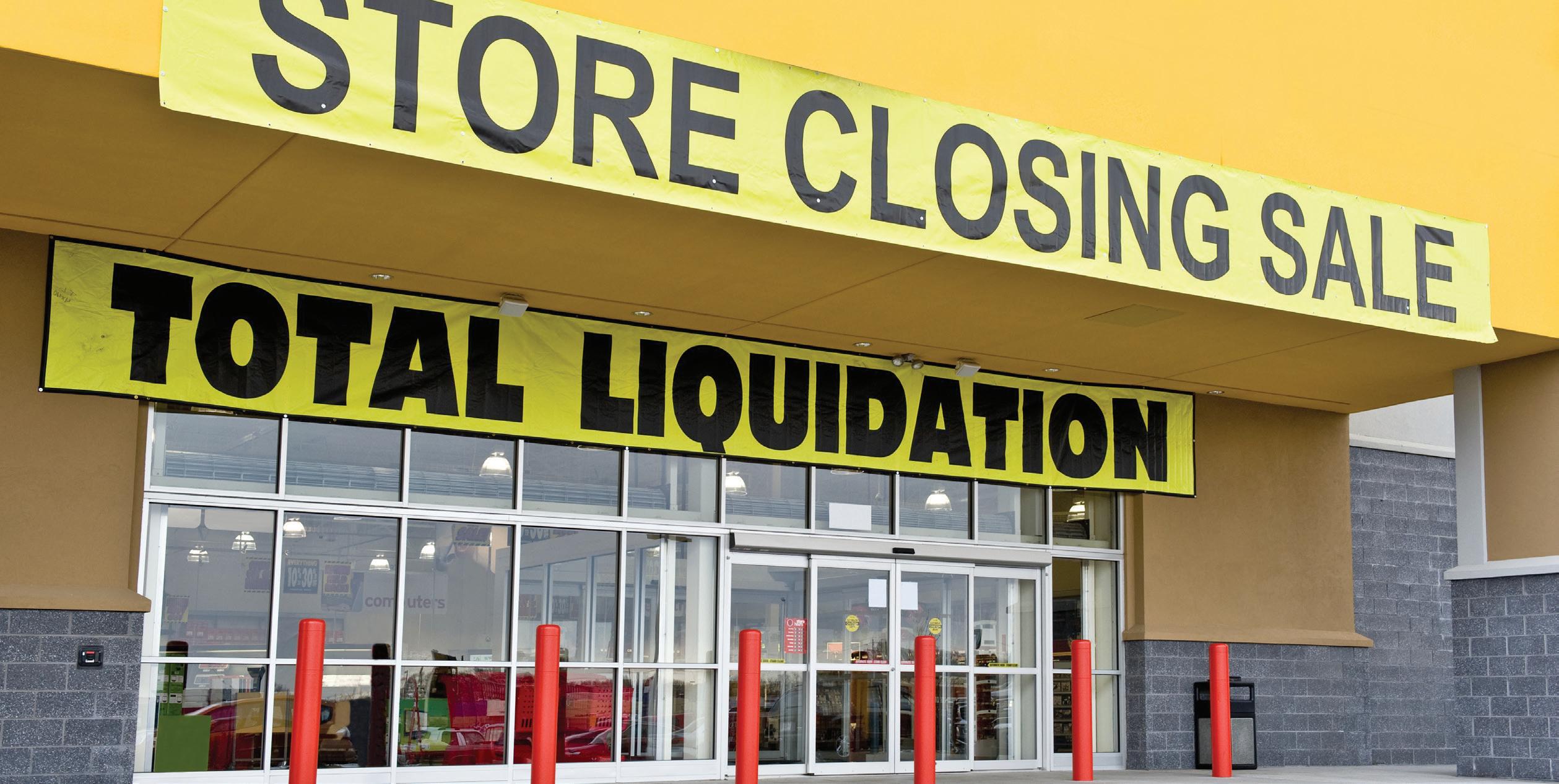
11 minute read
Diversity, Equity, & Inclusion: Working Groups
in the past six months, the American Bankers Association (AmBA) has formed three groups around diversity, equity, and inclusion to foster bankers’ discussions and create opportunities for collaboration.
The first group, the AmBA Diversity, Equity, and Inclusion Advisory Group provides input to guide ABA staff on programming and advocacy efforts while serving as a major resource for bankers’ DEI needs. The group’s mission includes developing new DEI opportunities and expanding existing programs that highlight banking as a career of choice.
The Advisory Group helps create and execute initiatives that showcase the industry’s diverse and dynamic career opportunities and commitment to supporting equitable banking solutions. They advise AmBA on recruiting and retaining diverse talent and expanding succession planning resources. The advisory group also complements and reinforces the emerging leader/women’s leadership programming developed by AmBA and state banking associations.
This group is made up of seventeen bankers drawn from different asset-sized banks, a cross-section of geographic locations, and varying positions within their banks though all having a strong interest in and/or responsibilities for diversity, equity, and inclusion. The bankers in the Advisory Group represent a number of identity factors, including, but not limited to different races/ethnic groups and genders. They meet on a quarterly basis and members serve a two-year term. Naomi Mercer is the staff liaison for the Advisory Group.
At the most recent Advisory Group meeting, the members discussed AmBA’s response to the current civic activities around
By Naomi Mercer, SVP, Diversity, Equity, & Inclusion American Bankers Association
police brutality and racial inequalities more broadly as well as their own banks’ responses. Other topics included internal and external communications regarding current events, the pros and cons of in-house or outside consultants to lead facilitated “critical conversations,” ways to engage their communities, and the need for online assessment tools to pair with self-reflection exercises that foster individual development on DEI topics.
While forming the Advisory Group, AmBA staff realized that a two-pronged approach was indicated. AmBA had identified a dearth in policy input on DEI subjects from organizations with more robust DEI programs. The AmBA Diversity, Equity, and Inclusion Peer Working Group is a forum for chief diversity officers and other senior diversity practitioners at midsize and larger banks with established diversity and inclusion programs. The Peer Working Group provides a forum for bankers to discuss and share current trends, challenges, and leading practices. They also offer feedback on DEI policy and advocacy efforts and provide input on AmBA resources related to diversity and inclusion. Beginning in February of this year, the Peer Working Group meets on a near-monthly basis. The staff liaison is AmBA policy attorney, Diana Banks.
Recent Peer Working Group meetings have focused on pivoting focus from recruiting and workforce issues to social justice issues, particularly the banking industry’s response to the Black Lives Matter Movement and racial disparities in income equality. Other topics of discussion included policies requiring masks inside bank branches for health and safety issues and the potential racial profiling implications, community outreach and engagement, and the latest developments in legislation regarding DEI and banks.
After the Advisory Group and Peer Workings Groups were formed, AmBA received a plethora of inquiries from bankers requesting a venue for peer engagement on DEI topics. As a result, in late July, AmBA hosted the first DEI Open Forum for all bankers interested in DEI. The Open Forum is for bankers to discuss current DEI challenges and topics, exchange leading practices and ideas, and to learn more about implementing diversity, equity, and inclusion programs and initiatives at their banks. The Open Forum lets AmBA hear from members not involved in other DEI groups and helps AmBA determine the resources and tools members need that AmBA may be able to develop for them in the DEI space.
Topics of discussion for the inaugural meeting ranged from approaches to DEI responsibilities in the bank to board of director oversight of DEI programs, types of metrics to measure DEI progress, the OMWI self-assessment, and successful initiatives. Because of the amount of interest in and attendance at the inaugural meeting, the Open Forum is currently scheduled to meet once a month. Naomi Mercer is also the staff liaison for the Open Forum.
All of these groups provide valuable feedback to AmBA and provided the impetus for AmBA to develop several resources now available on the DEI page, aba.com/diversity. The latest member-requested resources include: a Leading DEI Practices repository; training for diversifying a bank’s board of directors; DEI key terms; dos and don’ts for critical conversations; tips for retaining senior executives from underrepresented populations; and much more. Our member banks are leaning into diversity, equity, and inclusion and AmBA is here to support those efforts.
About the Author
Naomi Mercer is senior vice president for diversity, equity and inclusion at the American Bankers Association. She transitioned from a 25-year military career where she served as an assistant professor in the Department of English and Philosophy at the United States Military Academy and in the Pentagon running the Army’s gender integration and religious accommodation programs. Her educational background includes a doctorate in literary studies with a minor in gender and women’s studies from the University of Wisconsin-Madison and an executive certificate in strategic diversity and inclusion management from Georgetown University’s Institute for Transformational Leadership. She is the author of the academic monograph, Toward Utopia (2015).
5minutes with...
Robert Husong
President First National Bank of NWA
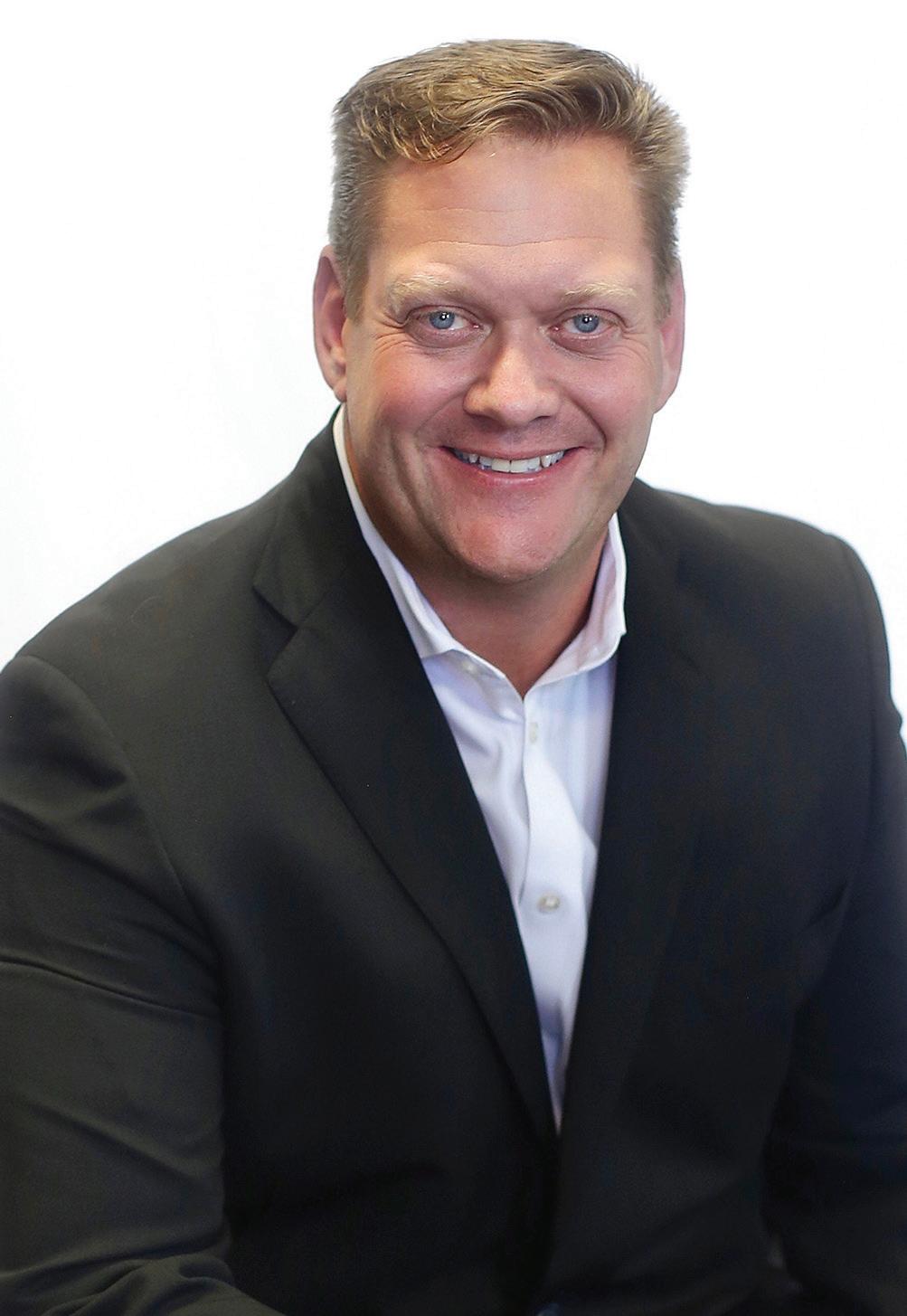
Please tell us a little about yourself .
I grew up in Grove, Oklahoma which is near Bentonville, AR. Growing up in Grove I worked on a cattle ranch and worked with heavy equipment both businesses ran by my family. I attended the University of Arkansas and graduated with a degree in Marketing Management in 1996. Upon graduating, I got married and moved to central Oklahoma. My wife and I moved back two years later and have been in NWA since. I have four boys and we, including my wife Carrie, all like to run, hike, camp, fish, and anything outdoors related. I also enjoy hiking mountains (those over 14,000 feet known as "14ers") in Colorado when I am able to get away. To date I have hiked 18 of the 58 peaks.
How long have you been in the banking industry?
Upon graduating from the U of A in 1996, I became a loan officer in Oklahoma City. I spent two years getting a crash course on all things lending, sales, and collections. We then moved back to NWA in 1998 and I went to work for McElroy Bank & Trust in Fayetteville. I worked there through the “.com” bubble bust, Y2K, and 9/11 while also seeing the consolidation of charters to become Arvest Bank. I left Arvest in 2004 with a group of friends/co-workers to start a new bank in Fayetteville. I’ve always had an entrepreneurial nature, so being part of a de novo bank was very intriguing and exciting to me. We officially opened Signature Bank of Arkansas (SB of A) in May of 2005. The time between leaving Arvest and opening SB of A we actually worked on staff at Community First Bank (CFB) in Harrison, partnered in helping us start SB of A. It was during that time I learned how great a community Harrison is and how awesome the bankers were, namely King Gladden (who left us way too soon) and his “partners” at CFB.
At SB of A, as with any startup, we all wore lots of hats and were pushed to learn new things. At one point, it was joked internally that I had five different concurrent titles, depending on what capacity I was being used for the day. I think I had moved through 17 different physical offices while there due to our fast growth. I was at SB of A when the housing bubble hit and with some tenacity, a lot of hard work, long days, great teammates, leadership, and customers, we made it through. I had the opportunity to learn a lot and meet a lot of great bankers from across the state before, during, and after that great recession while at SB of A. It seems like a distant memory now but I wouldn’t change that experience for the world. In 2013, my current employer, the First National Bank of Fort Smith, asked me to join them to take the helm of their NWA division which was formerly known as Bank of Rogers. I was asked to rebrand, build a team, build a culture, and grow a bank while helping the NWA community by being a local bank that gives back. Since joining this team in 2013, we have rebranded to First National Bank of NWA, expanded into two NWA cities, helped redefine what a banking experience can be, and found numerous ways to give back to our community by creating opportunities for small businesses and non-profits to partner together to benefit them and the community.
What trait does the modern banker need to have to be successful?
Have passion. Have a passion to help your customer, help your town, help those that need help. Have passion to see your world change for the better even if it means taking some risk and doing something you’ve never done before. Have passion to see your own organization be more than it currently is, there is always room for one to be better. Take pride in who you are and who you work for and where you live. Have passion to do your job the best you can. This should drive us to learn, to listen, to be our best every day, and to be a bridge in the community for others ideas or dreams to become reality. 12 The Arkansas Banker n Fall 2020
To you, what is the most enjoyable aspect of being a banker?
There are definitely aspects to banking that are not enjoyable, so if you are going to survive and even thrive in banking, you have to have something that you find enjoyable and rewarding. For me, it’s a combination of things. I enjoy being a part of the community and seeing what I can do to make it better. I love helping the startup business and seeing them succeed. I love the relationships I’ve developed with customers, community members, and my team. I also love building/problem solving. Whether helping other people grow or building new processes, products, or even some cool branches (sorry, a little plug for FNBNWA) I like being creative. I think this fulfills my entrepreneurial side which is rewarding to me.
What is the most important lesson you’ve learned in career to date?
Never stop listening and learning. Especially in this drastically changing world, bankers need to be listening to their customers and their employees. If you don’t know what issues your customers are facing or how they view you or your organization then you are already headed in the wrong direction. The same goes for listening to your team. But you can’t just listen, you have to act as well. This means that you also have to be willing to learn new ideas and new technologies in order to sometimes act on the issues that were brought up. Our customers and teams need us to be the leaders in problem solving so we must be constantly learning if we are to stay relevant.
What do you perceive as the challenges facing your community today, and what is your bank’s role in contending with these challenges?
Well, at the moment it’s hard to think past COVID-19 but I think we are as a nation/state/community at a pivot point of how we interact and conduct business with each other, especially banks. Unfortunately it’s too soon to determine the full extent of permanent change but I know this is going to drive everyone to embrace more technology. It’s a concern as the community banks advantage is the connection with the local community and people. Community banks are also key supporting the community by helping organize local fundraisers, support of non-profit events, youth activities, etc. Our communities need our local banks to be involved to support community services. Our small businesses need our local bankers to be available and accessible for their experience and advice. As community banks we will have to be creative on how we are able to meet these needs. Virtual galas, streaming youth sports, Zoom meetings with small business owners, whatever it may be –the need for community banks and bankers doesn’t go away but our interaction is changing and it’s up to us to be ready and prepared for how we interact with our communities going forward. I’d encourage bankers to not sit back and wait but be leaders of change in this area, your community needs you.
What’s your biggest guilty pleasure?
Mine are food related: Crispitos from the local gas station and I still eat a Twinkie once in a while.
MANAGE YOUR RISK.

COUNT ON OUR ATTORNEYS FOR BANKRUPTCY COUNSEL
• Bankruptcy • Complex Workouts
• Business &
Commercial Litigation • Fraud Investigations & Reporting
• Commercial & • Landlord &
Agricultural Foreclosures Tenant Issues
LITTLE ROCK | ROGERS | JONESBORO | AUSTIN
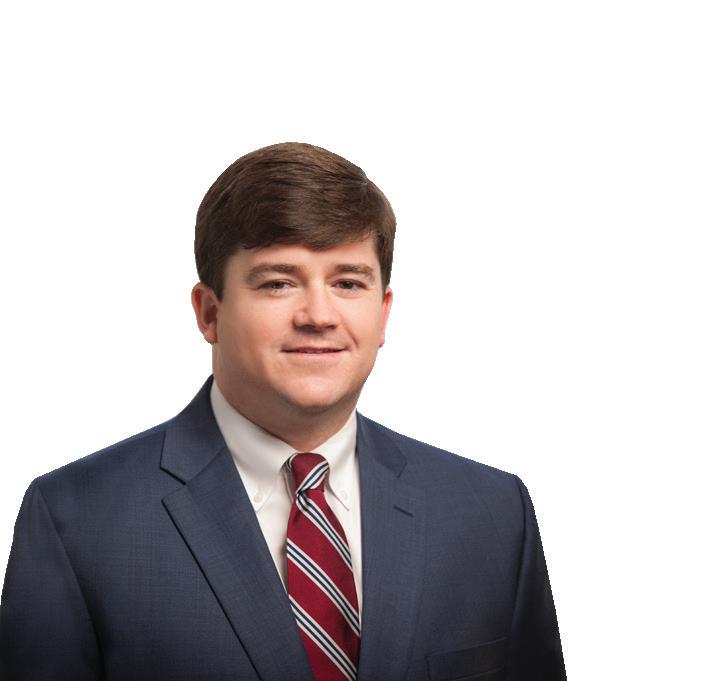
Chris McNulty
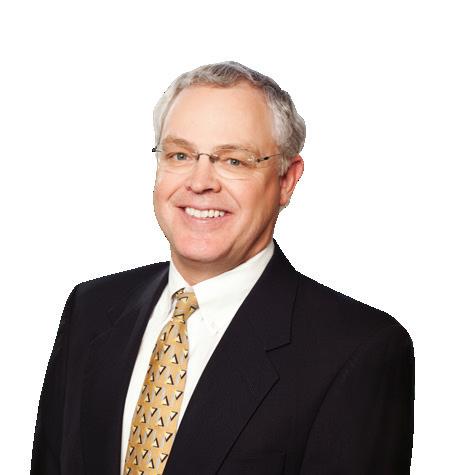
Lance Miller Stan Smith Allison Raley
425 W. Capitol Ave., Ste. 1800 | Little Rock, AR 72201 | (501) 688-8800

